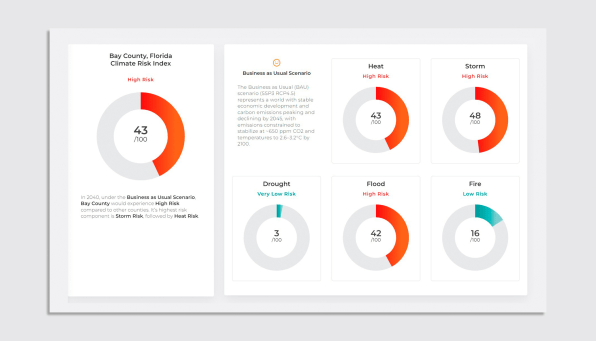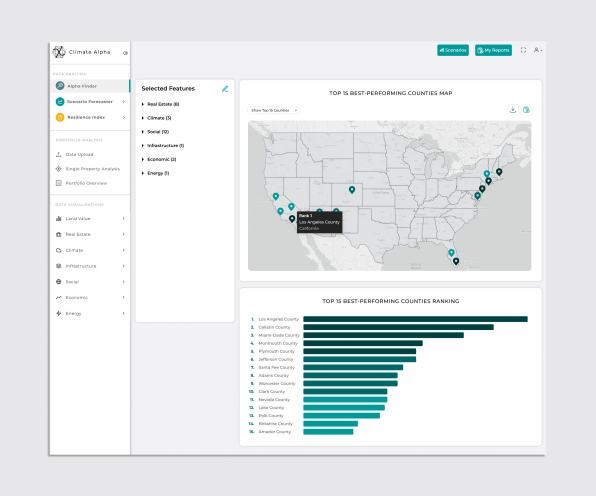[ad_1]
If you buy a house in Miami or Phoenix in 2022, what will it be worth in five years or ten years as climate change progresses? A new tech platform, Climate Alpha, uses a “scenario forecaster” to help answer that question—and to help predict where it might make sense to invest instead.
“We’re blending the entire history of the American modern property market with climate modeling,” says Parag Khanna, founder and CEO of Climate Alpha. While other tools exist to look at climate risk by location, the startup saw the need to look at a more complex picture. How are cities adapting and investing in infrastructure to protect against climate impacts? Where are jobs growing? Where are people moving now, despite extreme heat or wildfires or sea level rise?

“People are still moving to Miami, and they don’t care about the climate,” he says. “So you have to model human behavior, and you have to look at lots of factors beyond climate.” It’s not as simple as saying that because the sea level is rising, property values will drop; the platform uses machine learning and proprietary algorithms to look at hundreds of variables. It includes products like “Climate Price,” an estimate of property value in the future, “Resilience Index,” a dashboard that compares locations by their vulnerability and adaptation, and “Alpha Finder,” which lets users enter criteria to get an analysis of where to buy.

Khanna started working on the company while writing Move: The Forces Uprooting Us, a book exploring how people will migrate because of climate change, political upheaval, jobs, and other forces. “The point of the book was not to dwell on where people will leave,” he says. “I was undertaking what I think of as an as an ethical challenge to figure out where the human population can sustainably and equitably reside, as climate change and other conditions deteriorate over the next 10, 20, 30 years, at a scale of billions of people.”

The platform is launching with data about the U.S., though it will expand globally. Large real estate investors can use it to plan investments. Lennar, one of the largest home construction companies in the U.S., is an early customer. A tool for individual homebuyers will soon launch. “So you could enter your street address, and the price that you bought your property at, and that’s all you would need to do,” he says. “And then we could give you what our forecast is for the fair market value of your home for any year.”
Governments can also use the tools to help plan where to invest for climate migration, and where to encourage people to move. “My belief is that we should use this technology to identify those locations that meet the criteria for livability—affordability, space, lower cost, building zero energy homes, high share of renewable energy in the grid, clean air, and proximity to certain infrastructure—and to ‘pre-design’ the settlement of the future.”
[ad_2]
Source link

